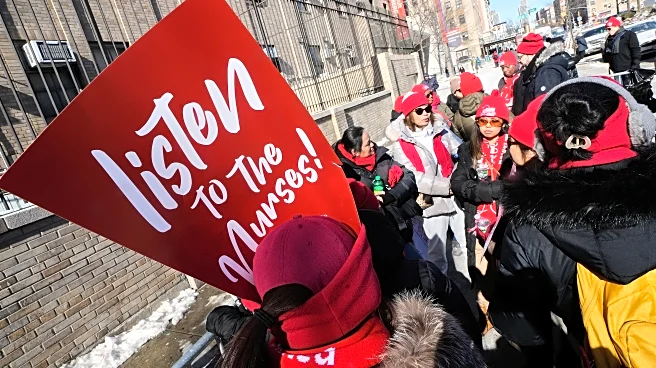What's Happening?
Recent firings and suspensions have occurred following comments related to the fatal shooting of conservative influencer Charlie Kirk. High-profile cases include the removal of Jimmy Kimmel from ABC and Matthew Dowd from MSNBC due to on-air comments. Additionally, several employees from institutions such as The Washington Post, Riverside Walter Reed Hospital, and American Airlines were dismissed for social media posts celebrating the incident. Experts emphasize the importance of robust social media policies to guide employers in handling such situations. The National Labor Relations Act's protections may also be relevant, as it safeguards workers' rights to engage in concerted activities related to collective bargaining or mutual aid.
Why It's Important?
The firings underscore the critical need for employers to establish clear social media policies that address off-duty conduct and potential reputational harm. While private-sector employees are not protected by free speech laws in employment decisions, state laws may offer some protection for political speech. The National Labor Relations Board under the Biden administration has taken a broad view of employment terms, which could impact how social media posts are treated. Employers must balance the value of free speech with the need to prevent harassment and discrimination, ensuring policies are explicit and uniformly enforced.
What's Next?
Employers may need to reassess their social media policies to ensure they are narrowly tailored to address statements that violate anti-harassment or discrimination policies. Companies should consider the implications of reputational harm, especially when employees post with their employer's name attached. The evolving interpretation of the National Labor Relations Act may influence future decisions, particularly if a new board under a different administration takes a narrower approach.









